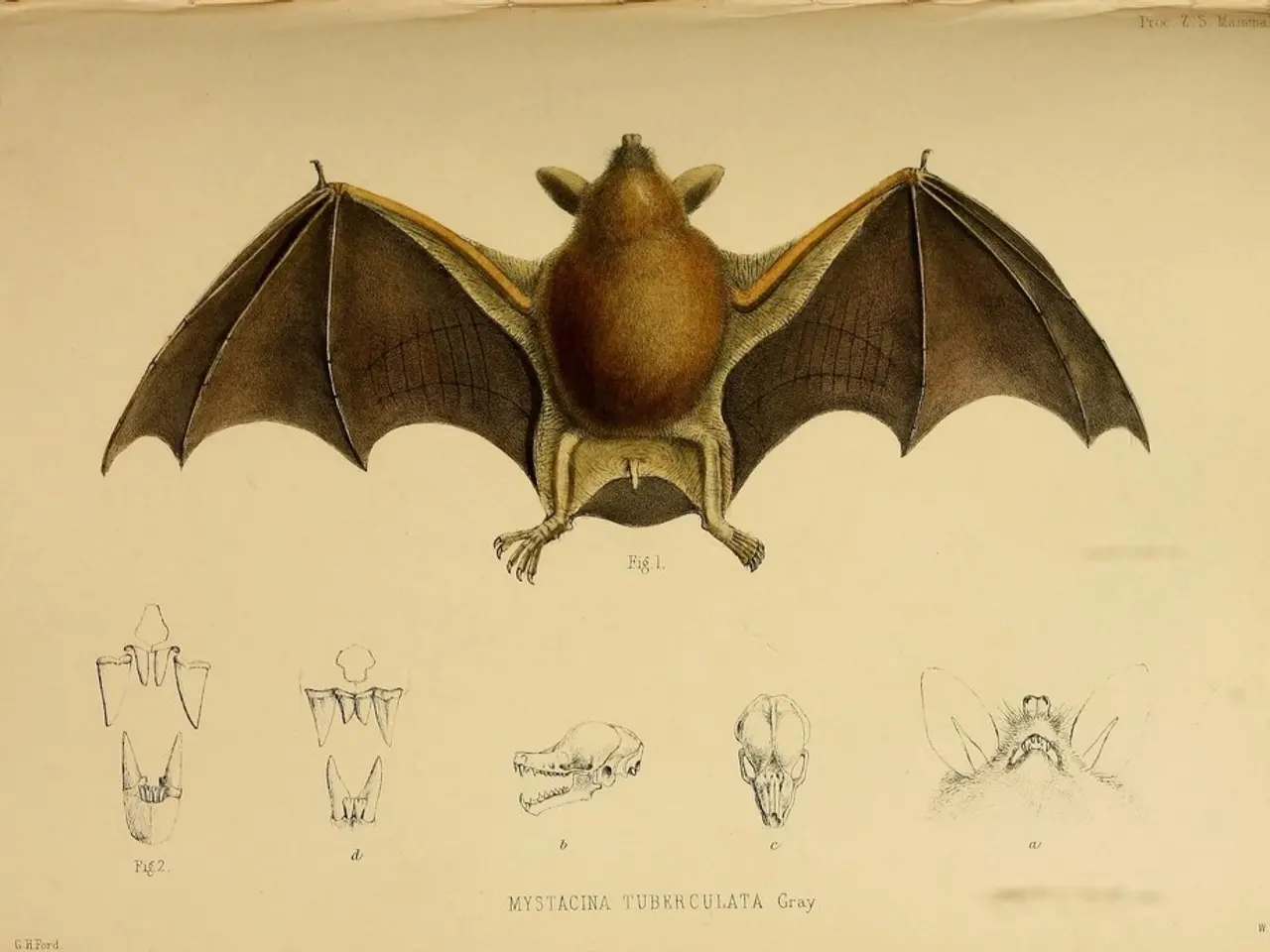Revolution in Sodium-Ion Battery technology by Macsen Labs: Provisional patent filed, and progress made towards large-scale production.
Macsen Labs, a leading manufacturer of APIs, dyes, and specialty chemicals, has made a significant breakthrough in the field of battery technology. The company has announced the successful R&D-scale synthesis of Prussian White, a next-generation cathode material for Sodium-Ion batteries [1].
This development by Macsen Labs promises an energy density exceeding 150 mAh/g, comparable to that of Lithium Iron Phosphate (LFP) batteries [2][5]. The company's sodium-ion cells are described as performing "at par with LFP" while utilizing abundant, low-cost materials like sodium and iron [4].
Stability and Performance
Although explicit quantitative data on cycle life and long-term stability are not yet detailed, Macsen Labs is actively working on optimizing cell chemistry to improve cycle life, charge rates, and electrolyte performance for sodium-ion batteries [2]. This focus on enhancing stability and durability indicates a potential for performance competitive with LFP technology.
Cost-Effectiveness
Sodium-ion technology gains significant advantage by using:
- Aluminium instead of copper as the cathode current collector, which reduces material costs considerably [2].
- Low-cost, non-toxic elements (sodium and iron), avoiding the use of expensive and critically sourced cobalt or rare earth metals common in lithium-ion batteries [2][4].
- Compatibility with existing lithium battery manufacturing lines, lowering capital expenditure for production scale-up [2].
Applications and Future Plans
The Macsen Labs sodium-ion batteries are well suited for various applications such as battery energy storage systems (BESS) for grid and solar, household backup and inverter systems, short-range EVs, auto-rickshaws, two-wheelers, city buses, rural microgrids, and energy access solutions [3].
To demonstrate the performance of Prussian White in commercial large-format cells, Macsen is setting up a pilot-scale cell fabrication line. The company aims to have the pilot-scale production facility operational by early 2026 [3].
The Vision for a Truly Indigenous Energy Storage Ecosystem
Macsen Energy, the new entity focusing on energy storage innovation and scale-up, is led by Mr. Achal Agrawal, CEO of Macsen Labs. Agrawal stated that sodium-ion batteries are India's opportunity to build a truly indigenous, scalable, and affordable energy storage ecosystem [3].
The discovery of Prussian White was made while working on Prussian Blue as a drug for radioactive poisoning [6]. This serendipitous finding has opened up new possibilities for sustainable, cost-effective, and locally sourced energy storage solutions.
References:
- Macsen Labs Breakthrough in Sodium-Ion Battery Technology
- Macsen Labs: Sodium-Ion Battery Technology for the Future
- Macsen Labs: Sodium-Ion Batteries: India's Opportunity
- Macsen Labs: Sodium-Ion Batteries: A Sustainable Solution
- Macsen Labs: Sodium-Ion Batteries: A Comparison with LFP
- The Discovery of Prussian White: A Serendipitous Find
The advancements made by Macsen Labs in the field of battery technology, specifically the successful synthesis of Prussian White, showcase the integration of science and technology in creating a promising cathode material for Sodium-Ion batteries. This next-generation development could potentially revolutionize the energy storage industry, combining high energy density, comparable to Lithium Iron Phosphate (LFP) batteries, with cost-effective and sustainable production using materials such as aluminium, sodium, and iron.




